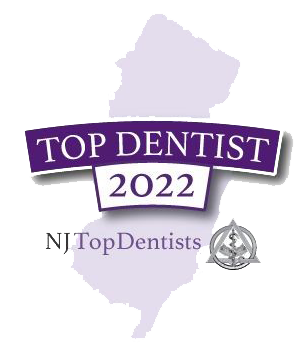
Tips for an Ergonomic Work Station to Help Prevent TMD

 Several factors can cause disorders affecting the temporomandibular joint (TMJ), the hinged joint in the jaw that allows us to open and close our mouths. One possible cause of temporomandibular joint disorder (TMD) is poor posture. To help correct bad posture and thus help prevent TMD, the team at Headache and TMJ Center of New Jersey offers the following ergonomic tips for your workstation.
Several factors can cause disorders affecting the temporomandibular joint (TMJ), the hinged joint in the jaw that allows us to open and close our mouths. One possible cause of temporomandibular joint disorder (TMD) is poor posture. To help correct bad posture and thus help prevent TMD, the team at Headache and TMJ Center of New Jersey offers the following ergonomic tips for your workstation.
#1: Be sure to sit with your head and neck in an upright position, so they are aligned with your torso. Avoid tilting your head and neck forward or backward.
#2: Set up your computer monitor so you don’t have to turn your head to see it. You want to make sure that you are looking at it straight on.
#3: Adjust your computer monitor so that the top of the screen is at or just slightly beneath eye level. You should not have to bend your neck to see the monitor.
#4: Adjust your computer screen so that it is free of reflection and glare.
#5: Position your computer monitor so it is sufficiently close to you; you should be able to read text on it easily, without leaning forward.
#6: Adjust the height of your chair and desk so that your elbows are bent at 90 degrees. They should also rest close to your body. Your hands, wrists and forearms should be aligned and should be parallel to the ground. Your thighs should also be parallel to the floor while your lower legs rest perpendicular to the ground. Finally, rest your feet solidly on the floor or a foot rest.
#7: Make sure your chair provides good support for your lower back. Your chair should have a cushioned seat with a rounded edge on the front of it.
#8: Keep your mouse close to your keyboard, so you don’t have to reach too far to use it.
#9: Individuals who look at printed documents while using the computer should use a document holder that is positioned at the same height and distance as their computer screen.
#10: Use a hands-free headset when talking on the phone, to avoid straining your neck.
What to Do If You Suffer From TMD
If your workstation is ergonomically correct, but you still suffer from TMD symptoms — such as hearing a clicking or popping noise while you chew, headaches, migraines, pain in your jaw, facial or neck pain or a ringing in the ears — contact us for help. We can assist you in choosing a treatment option that will help alleviate your TMD pain.
To schedule an appointment with a TMJ dentist, contact Headache and TMJ Center of New Jersey by calling (855) 865-3627.

